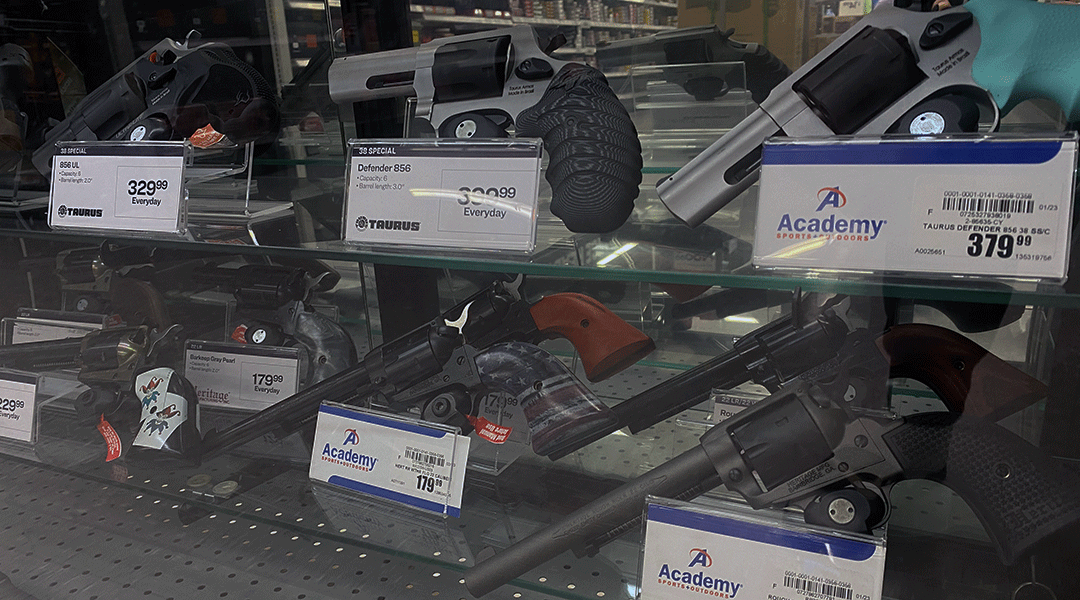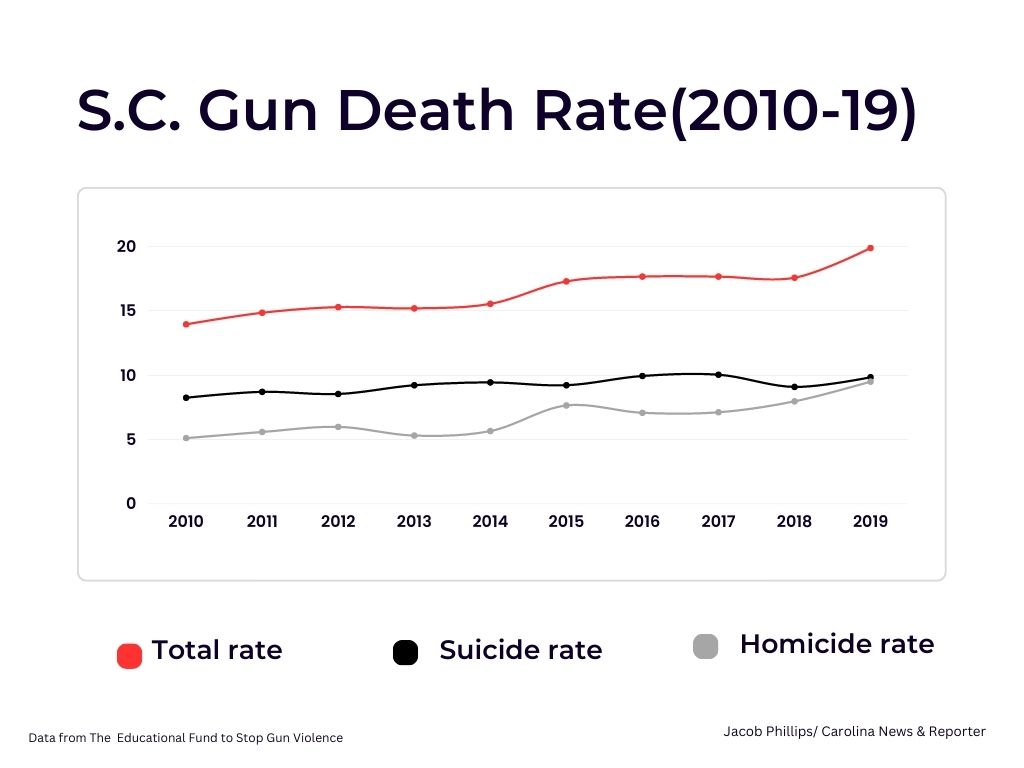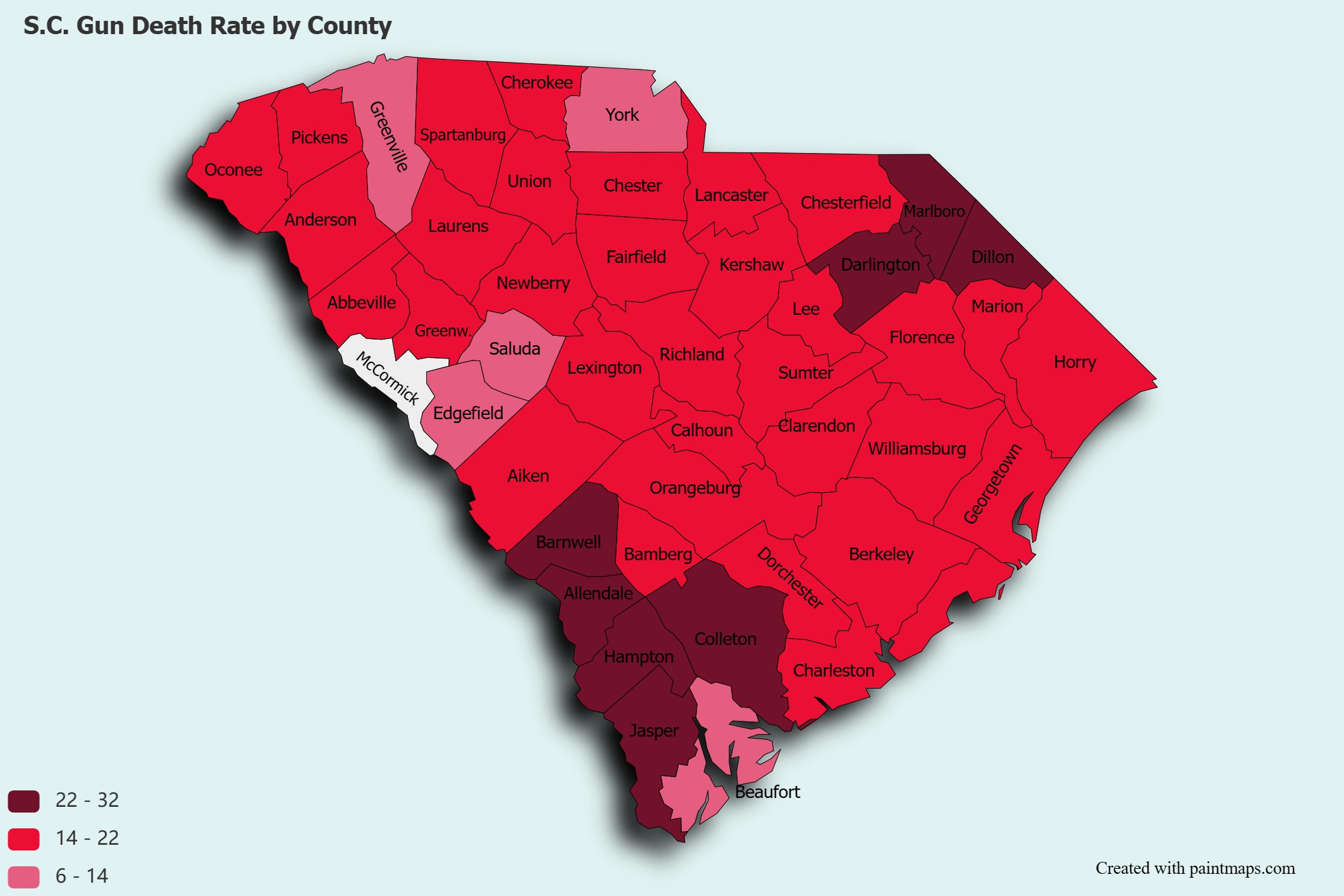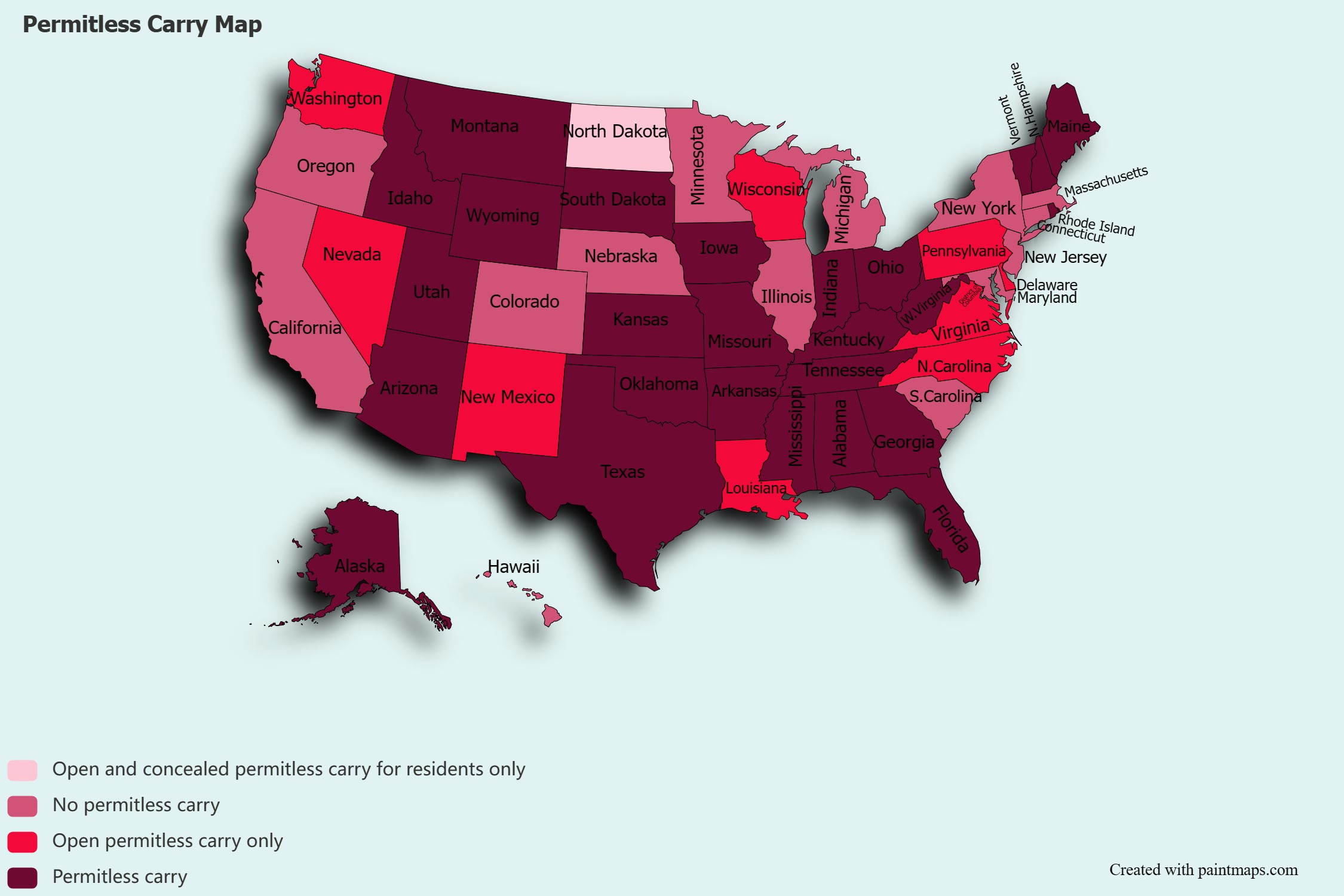The proposed bills would eliminate a carry permit, training and background check requirements for owning a handgun. (Photos by Jacob Phillips)
South Carolina lawmakers soon may pass new gun reform laws that would make accessing a firearm harder for some but easier for others.
Two bills in committee in the Senate would limit certain people’s access to firearms.
The first bill would increase the punishment for unlawful possession of firearms and be closer to federal standards.
The second bill would create a voluntary “do not sell” list for those who wish to prevent themselves from purchasing a firearm.
“Law enforcement officers are increasingly encountering armed, repeat offenders across the state who are federally prohibited from possessing (a) firearm, but are not prohibited by state law,” South Carolina Law Enforcement Division Chief Mark Keel said during a news conference last week. “This must change.”
Another pair of bills, one originating in the Senate and one in the House, would allow for open or concealed carry of handguns without a permit, training or background check.
“We’ve been trying to get permitless carry going here in South Carolina for over 10 years,” said Sherra Scott, a board member for the pro-Second Amendment non-profit South Carolina Carry.
Permitless concealed carry is legal in 26 other states, including every Southern state except Virginia, North Carolina and Louisiana.
Both constitutional carry bills are in committee in the Senate after the House bill passed the chamber by an overwhelming majority.
Some in law enforcement have concerns about constitutional carry, saying it could make their job more difficult.
“I am concerned about it,” Keel said. “My position on this is well documented.”
Scott said she has issues with the “do not sell” bill, but favored the bill that increased unlawful possession punishments.
“I don’t see that it creates a whole lot more restriction for the gun owners,” Scott said. “I know that there’s a couple of organizations that do have some issues with it. … It’s not major, they’re not trying to, like, outright ban things.”
The “do not sell” bill requires SLED to create the list and share it with local shops. The problems for Scott start with the two weeks it takes to get off the list.
“If you want to be taken off of it because all of a sudden, you’re being stalked, and you need to go get a gun, because your ex-boyfriend is stalking you, well now you can’t because you have to wait at least 14 days,” Scott said. “This is one of those that to me was just kind of put together to make people feel good, like something was being done.”
But states that have passed similar laws think the list will help lower suicide rates, an increasing problem in recent years, according to media reports.
The CDC reported 2020 was only the second time there were more than 24,000 gun suicides – the second-worst year in three decades. In South Carolina that same year, suicide accounted for 55% of firearm-related deaths.
Increased suicides aren’t the only form of firearm violence that has seen a spike in recent years.
In the state of South Carolina alone, from 2011-2020, the homicide rate increased by 92%. Nationwide, the increase was 72%.
Gun violence is also the leading cause of death in children and teens in South Carolina. On average, 92 children and teens will die each year in the state, with around 60% of those being a homicide.
“I’m concerned about the increase in number of murders in … young people with guns in our state,” Keel said. “Gangs, drugs and criminals’ easy access to guns continue to play a significant role in the violence that we’ve seen in South Carolina.”
Activists and elected officials have different approaches to addressing the issue of gun violence. Scott said the proposed laws aren’t targeting the right issue.
“It’s not a gun issue,” Scott said. “It’s a society issue. It is a person issue. Then you dig deeper, and it’s mental.”
Gov. Henry McMaster called on the General Assembly to pass gun reform legislation this session but made sure to specify that he still supports residents’ Second Amendment rights.
“This is not creating new crimes,” McMaster said during the news conference. “We, the honest citizens, law-abiding citizens, have a constitutional right to keep and bear firearms, and we are not going to intrude on that.”
McMaster also called for reform to the bond system, which he said has allowed violent offenders to roam the streets while awaiting trial.
“Close the revolving door for repeat offenders by passing legislation to increase the criminal penalties for illegal gun possession,” McMaster said. “Fix the broken bond system in our courts. It is ineffective.”
But as these bills are being considered, the two permitless carry bills could potentially undo many of the reforms made by the other two laws.
If residents are allowed to carry a handgun with no background check or training, it would be challenging to uphold an unlawful carry law, some have argued
Telling the difference between a law-abiding citizen and a multiple-offender could become increasingly challenging as well, they say. And many who were previously denied permits before would be allowed to carry a gun.
In the past seven years, 21 states have passed a permitless carry law. Since the bills’ passing, these states have seen an increase in violence, according to a study from the nonprofit Giffords Law Center.
This permitless carry bills are associated with about a 14% increase in violent crime rates and an 11% increase in rates of homicides committed with handguns, the center found.
In South Carolina and surrounding states, gun reform and Second Amendment rights often clash.
The state has seen increased violence and contradicting laws. But officials are hopeful the new proposals will have an impact.
“I mean, we’ve seen what can happen,” McMaster said. “We can’t let those things keep happening. … If those who would break the law, those would’ve hurt others, those would do these dangerous things, if they know that there will be repercussions to them, then that will dissuade many of them from doing it.”





